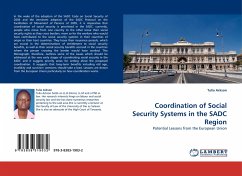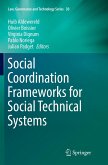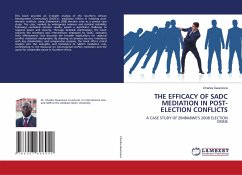In the wake of the adoption of the SADC Code on Social Security of 2004 and the imminent adoption of the SADC Protocol on the Facilitation of Movement of Persons of 2005, it is imperative that coordination of social security is prioritised in the SADC. currently, people who move from one country to the other loose their social security rights as they cross borders, more so for the workers who would have contributed to the social security systems in their countries of origin or their host countries. They loose their insurance periods, which are crucial in the determinations of entitlement to social security benefits, as well as their social security benefits accrued in the countries where the person crossing the border would have worked. This Monograph, therefore, outlines some of the issues which should be addressed at the very early stages of coordinating social security in the SADC and it suggets priority areas for setting afoot the proposed coordination. It suggests that long-term benefits including old age, invalidity and survivors pensions should take a lead. Lessons are drawn from the European Union particularly on how coordination works.
Bitte wählen Sie Ihr Anliegen aus.
Rechnungen
Retourenschein anfordern
Bestellstatus
Storno








